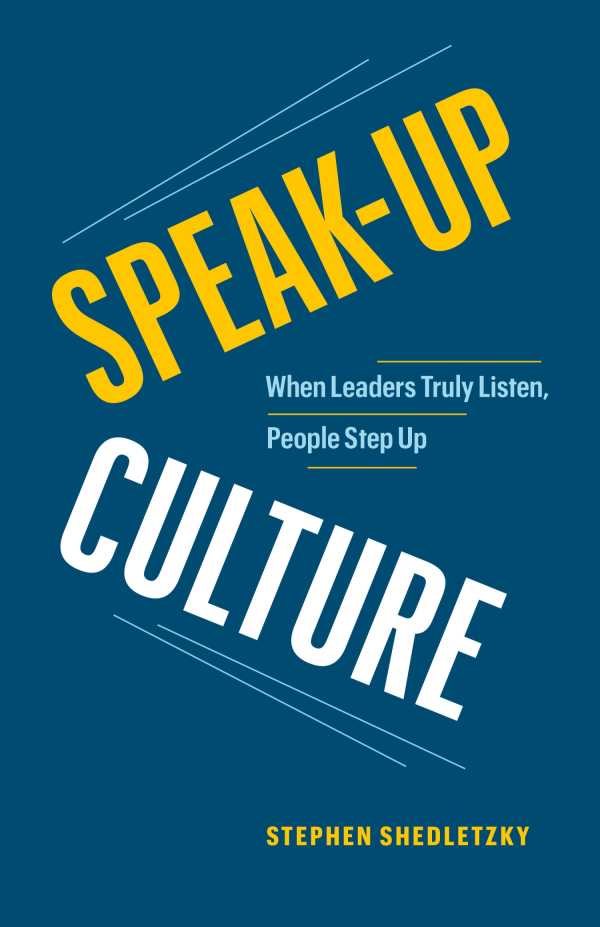Speak-Up Culture
When Leaders Truly Listen, People Step Up
The self-aware business guidebook Speak-Up Culture argues that workplace cultures should be based on honesty and respect.
Stephen Shedletzky’s insightful business development book Speak-Up Culture is about fostering working environments that encourage honesty.
Opening with the account of how a failure to heed concerns raised by a senior manager led to two tragic plane crashes, the book establishes the importance of creating a culture that enables workers and managers to voice their concerns and objections. Though the bulk of the examples that follow do not end in the same devastation, they further support the book’s argument that failing to establish a work environment in which honesty is encouraged could have dire consequences.
The book demonstrates a high level of awareness that its ideas are not all original or unique. It also acknowledges its use of clichés like “You are the average of the five people you spend the most time with.” Where the book differentiates itself is with its in-depth analyses of established ideas, which it substantiates with relevant examples—as where it demonstrates the difference between the skills people possess and the attributes that define them. Indeed, it is thorough in explaining these two factors, including with a real-life example—a detailed account from a Navy SEAL in which these concepts manifested—that is further supported by Shedletzky’s clarifying insights on the story and the larger topic.
Herein, information is shared in a consistent manner, and the book’s transitions from one concept to the next are smooth. The book supports each of its points with a balanced mix of anecdotes from business executives, insights from thought leaders, personal perspectives, and credible sources. It also includes a limited number of simple graphics that represent its concepts well.
Though Shedletzky’s experience and insights are apparent throughout the text, his most impactful personal anecdote is held until the book’s end, which includes an account of his personal struggles with speech that sums up the importance of fostering a speak-up culture. This is an effective choice, as the story further enhances the book’s efforts to show that creating a culture that welcomes honest feedback is not limited to the corporate environment, thus strengthening the book’s appeal beyond its business audience.
Using a compelling blend of research and thought leadership, the business guidebook Speak-Up Culture argues that workplace cultures should be based on honesty and respect.
Reviewed by
Gail Hoffer-Loibl
Disclosure: This article is not an endorsement, but a review. The publisher of this book provided free copies of the book and paid a small fee to have their book reviewed by a professional reviewer. Foreword Reviews and Clarion Reviews make no guarantee that the publisher will receive a positive review. Foreword Magazine, Inc. is disclosing this in accordance with the Federal Trade Commission’s 16 CFR, Part 255.

